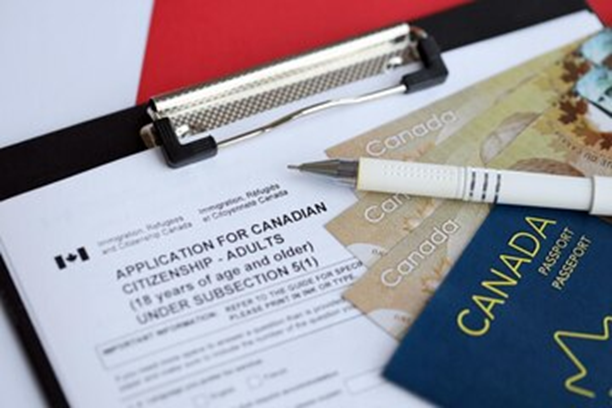

Conservatives seek to stop granting citizenship to babies born to temporary residents.
Canada is facing a heated political debate over who gets to be called Canadian. On October 8, 2025, the Conservative Party proposed ending automatic birthright citizenship for children born to temporary residents. The idea has already sparked strong opinions across the country, touching on fairness, inclusion, and the future of Canadian identity.
The Conservative Proposal
Conservative MP Michelle Rempel Garner introduced the plan, saying Canada’s current rule—granting citizenship to anyone born on Canadian soil—creates “loopholes” and encourages “birth tourism.” She said, “We need to align with peer countries,” pointing to nations like Australia, New Zealand, and the UK, which already limit automatic citizenship.
The proposed change would give citizenship only to children with at least one parent who is a Canadian citizen or permanent resident. It would require an amendment to the Citizenship Act. However, the immigration committee, made up of Liberal and Bloc Québécois members, voted down her motion earlier this week.
A Long-Standing Canadian Tradition
Birthright citizenship has existed in Canada since 1867. It helped attract settlers and strengthen loyalty to the new nation. The Citizenship Act of 1947 made this rule official, giving automatic citizenship to anyone born in Canada, regardless of their parents’ status.
Under Pierre Trudeau’s government in the 1970s, the policy became part of Canada’s multicultural identity. Many still view it as a symbol of equality and inclusion. But in recent years, critics have questioned whether the policy still fits modern realities.
Why the Conservatives Act Now
Canada’s growing temporary resident population has added pressure to housing, jobs, and healthcare. In 2024, temporary residents reached 2.8 million—up 150% since 2019. The Bank of Canada warned that this rise could add to inflation and strain public services.
Conservative Leader Pierre Poilievre’s team sees an opportunity. Recent polls show that 62% of Canadians support tighter immigration rules. Many are frustrated by rising living costs and believe immigration numbers are too high.
Critics say the Conservatives are using the issue to appeal to voters in suburban areas worried about affordability and population growth.
Liberals and Rights Groups Push Back
Justice Minister Sean Fraser called the plan “fearmongering,” noting that birth tourism makes up less than 1% of births in Canada. Human rights organizations warn that ending automatic citizenship could harm families with mixed immigration status and even leave some children stateless.
More than 50 advocacy groups have urged Parliament to reject the plan. They said in a joint statement, “Citizenship is a human birthright, not a privilege to ration.”
What Other Countries Are Doing
Only about 35 countries still offer full birthright citizenship, most of them in the Americas. The UK ended it in 1983, followed by Australia in 1986 and Ireland in 2005. If Canada makes this change, it would join the growing list of nations tightening citizenship rules.
What Comes Next
For now, the proposal will not move forward. The Liberal and Bloc Québécois majority blocked it. But the Conservatives promise to revisit the issue if they win the next federal election. They could then amend the Citizenship Act to limit automatic citizenship.
IRCC data shows a 15% increase in births to temporary residents in 2025. With that trend rising, the debate will likely continue. For many Canadians, the question remains—should citizenship depend on where someone is born or on their parents’ ties to the country?
As the conversation spreads across Canada, one thing is certain: the issue has opened a new chapter in the national immigration debate.
Having an 'Identity Verified' badge or being 'Identity Verified' simply indicates that an individual has submitted information to complete our identity verification process or we have conducted internal verification using various authorized websites. While this process includes safeguards, it does not guarantee that the person is who they claim to be.
If you encounter any issues with this profile, please report them here. While all consultants who are verified have RCIC ID, we may not have the latest data in terms of their renewal/cancellation/discontinuation of their RCIC ID.
The "Verified Consultants" profiles are created using publicly available information, including data from the IRCC website, official consultant sites, other listing platforms, and social media. Immiperts.com is an independent platform, not affiliated with IRCC or any registered immigration consultants. To update, claim, or remove your profile, please contact us at [email protected].
╳